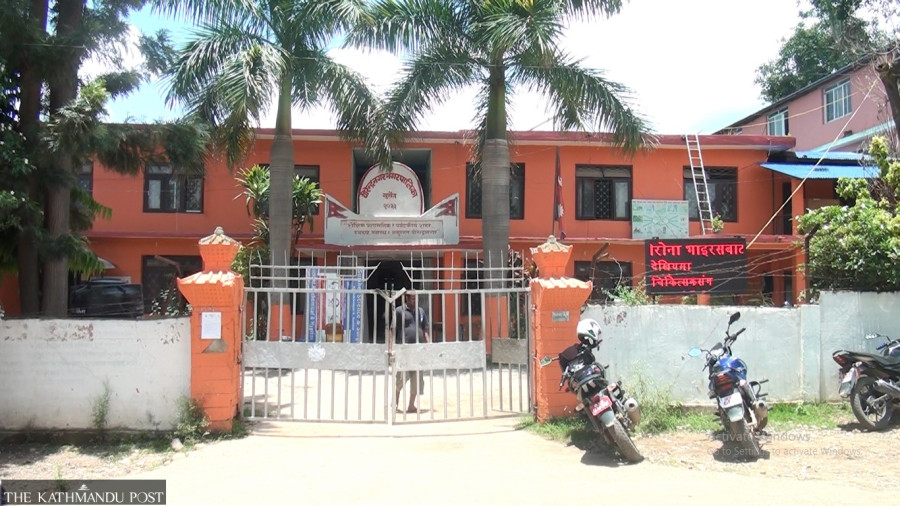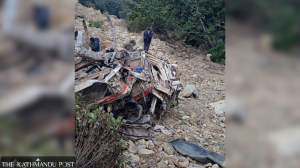Karnali Province
In Karnali, Birendranagar is overstaffed while most other local units are short of hands
The municipality has 335 staff for 64 sanctioned posts.
Tripti Shahi
Twenty-six out of the 79 local units in Karnali Province are currently facing staff shortages, affecting service delivery across the departments. One of the severely understaffed local units is Chhayanath Rara Municipality in Mugu where the workforce is headed by an acting chief.
Shivhari Rokaya, information officer at the municipality, says daily functions of the local unit have been affected due to a shortage of staff, especially in the administration department.
There are 14 wards in the municipality, but only five secretaries for them, Rokaya said.
“There has to be one secretary in every ward but no one wants to come here,” Rokaya said. “Hardly any government employee wants to go to remote areas. They all want to work in cities irrespective of whether they are needed there or not.”
Rokaya refers to the overwhelming number of employees in Birendranagar Municipality, the provincial headquarters of Karnali. The municipality currently has 335 staff even though there are only 64 sanctioned posts.
In the fiscal year 2018-19, the Ministry of Federal Affairs and General Administration approved a total of 64 employee positions for the municipality. However, the local government has 197 employees working permanently and 138 others have been contracted. Its municipal health unit alone is manned by 51 staffers.
While several Karnali Province local units are experiencing staff shortages, Birendranagar Municipality has five employees for every position.
The staff concentration in Birendranagar can be attributed to the employees’ reluctance to take a job outside the district headquarters and the federal government’s failure to control the practice of doling out personal favours.
“After the fiscal year 2018-19, the federal government started deploying more than the required number of employees in the municipality,” said Narahari Tiwari, the chief administrative officer in Birendranagar Municipality. “Some employees do not even know their positions or roles.”
Also, the difficulty in managing the many employees has hindered the efficiency of the municipal office, says Tiwari. The local unit is also yet to conduct the Organisation and Management (O&M) survey for reorganisation.
“The O&M survey is pending as the Federal Civil Service Act has yet to be formulated,” Tiwari said. “The problem of managing the services and staff is difficult as we are not sure how many employees are actually needed.”
The federal government keeps sending employees there. “It is challenging to provide effective services as we struggle to manage the office,” Tiwari said. “We don’t know how to manage office space for all the employees.”
Even if the staff are unsure of their duties and do not work, they are getting paid regularly. “The federal government pays employee salaries and no one has complained of not being remunerated,” said Tiwari.
Mayor Mohan Maya Dhakal says the federal government’s practice of sending staff to Birendranagar on deputation has flooded the office with unwanted staff.
“The municipality had been facing this problem way before I was elected mayor in May last year,” Dhakal said.
Meanwhile, rural local units continue to suffer from staff shortages which affect the government services.
Mugum Karmarong Rural Municipality in Mugu is also facing a severe shortage of employees, according to Subash Chandra Rawal, acting chief administrative officer in the local administration. The local unit doesn’t have staff in the health unit, agriculture, veterinary, technical and administration departments, Rawal said.
“The federal government is aware of the problems we face in service delivery due to staff shortages, but they have taken no steps to resolve the issue,” he said. “Instead, they keep sending more staff to Birendranagar.”




 13.12°C Kathmandu
13.12°C Kathmandu












